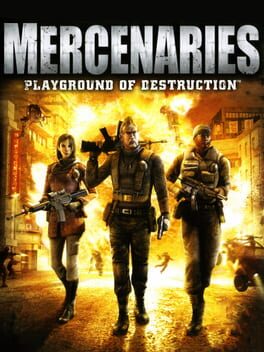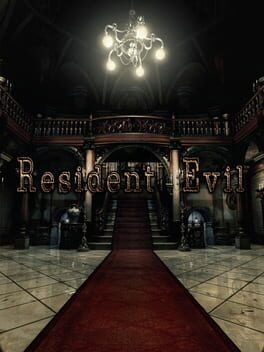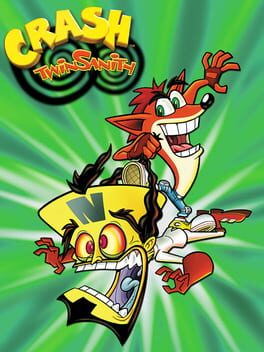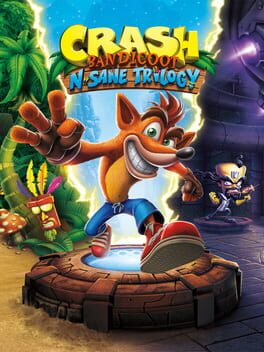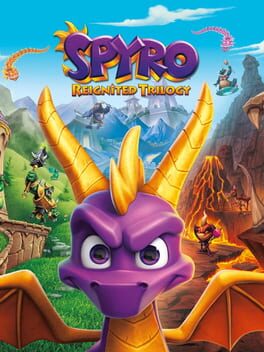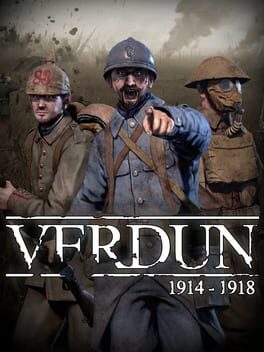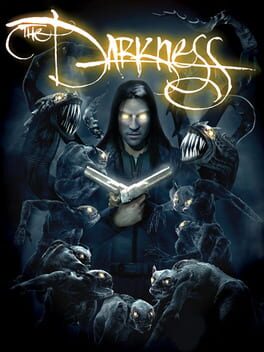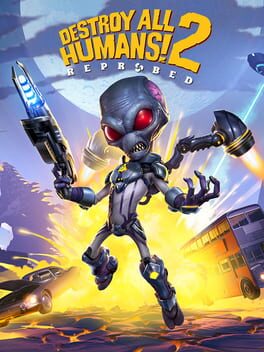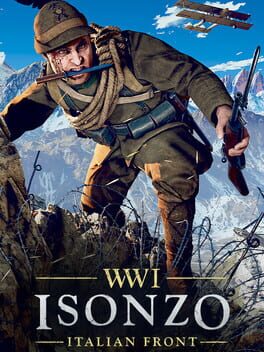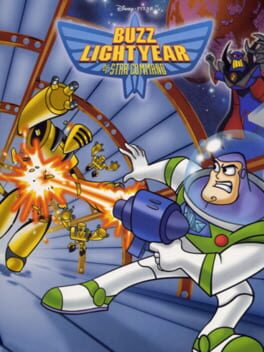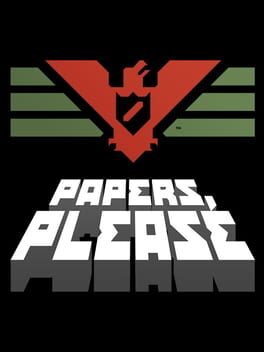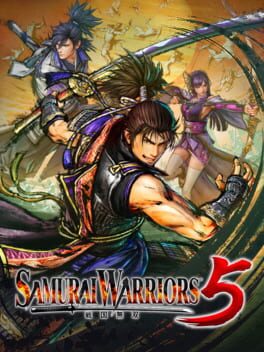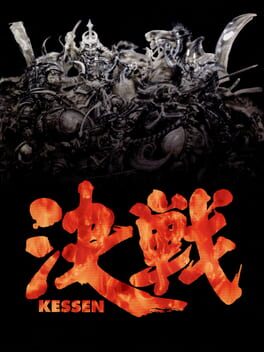Sav
The best open world design I've ever encountered in a video game. A grounded setting filled with interesting factions led by memorable voice actors, fighting proxy wars against each other through well crafted contracts. The Deck of 52 bounty system makes excellent use of the open world while also tying together the overall plot with the game world, creating a seamless connection between the open sandbox and the game's narrative.
Closest thing to a perfect game I've played.
Closest thing to a perfect game I've played.
2006
2011
2014
2004
An unfinished and buggy game filled to the brim with soul. Despite development hell Traveller's Tales managed to create a unique installment to the series with platforming and exploration combined with the best and greatest soundtrack (courtesy of Spiralmouth) in a Crash game.
This game marks the first time Lex Lang took over as Dr. Cortex and he absolutely chews the scenery almost every time focus is placed on him.
This game marks the first time Lex Lang took over as Dr. Cortex and he absolutely chews the scenery almost every time focus is placed on him.
2015
2007
It incorporated enough different mechanics to stand out amongst the many other post-CoD4 FPs games, and enough attention to detail to make me feel like the developers were passionate about making it. The game was often gory and high octane (if a little janky), but sometimes mellow and touching and overall felt refreshing to play.
A worthy remake that improves on the original in most aspects while only falling short in some minor areas. The levels look great and feel 'alive', most of the weapons have been buffed and perform better, and multiple missions were expanded upon to make them more interesting. The remake was quite buggy, with numerous graphical glitches, and mission objectives falling off the game world, but the generous checkpoint system alleviates some of issues.
2022
The setting allows for a nice change of gameplay from the maps of Verdun, and the classes and abilities feel important and useful enough to matter, as long as you're playing with teammates who know how to use them. It's also nice to see an underutilised front of WWI for once.
Class progression is kinda shitty, with things like grenades and new weapon types being locked behind levels and challenges.
Class progression is kinda shitty, with things like grenades and new weapon types being locked behind levels and challenges.
2013
Very unique game that turns a simple and mundane task into a tense thriller where you must balance your own safety and the needs of others in order to survive a despotic system. Alternate endings provide some replay value, but otherwise reaching the final days will show pretty all this game has to offer.
2021
Cut characters and cloned movesets suck, and while the story starts off promising, once the timeskip happens it goes to shit with some characters doing a 180 with their personalities. Gameplay is definitely an improvement over 4, with less focus on hyper attacks and more diversity between the rather low variety of weapons.
As for new characters, Yasuke, Sandayu and Kazuuji all kinda suck and are mostly forgettable. Mitsuki was alright, but I don't like OCs in historical games. Shikanosuke's a good addition, and I'd like to see more exploration of 'western' Japan in future titles. Lastly is Sena, who was by far the best new addition to the cast. A great design, a rare Imagawa character, and a well told, if underused, story.
Lots of problems, but a decent groundwork to build upon for future SW games.
As for new characters, Yasuke, Sandayu and Kazuuji all kinda suck and are mostly forgettable. Mitsuki was alright, but I don't like OCs in historical games. Shikanosuke's a good addition, and I'd like to see more exploration of 'western' Japan in future titles. Lastly is Sena, who was by far the best new addition to the cast. A great design, a rare Imagawa character, and a well told, if underused, story.
Lots of problems, but a decent groundwork to build upon for future SW games.
2000
The first Kessen is a relatively simple RTS that served as a launch title for the PS2, set towards the end of the Sengoku Period in Japan. The battles are either huge, open battlefields with dozens of officers on either side, or smaller battlefields with only a handful. From a gameplay perspective there were some really neat ideas, like officers refusing to follow your orders if their morale was low (or if you told them to do something their personality wouldn't let them), officers commanding multiple groups of infantry that would engage the enemy's groups individually while the commanders stood back and watched, and the scale was impressive.
Unfortunately, for like 80% of the game, the AI was just too stupid to really serve as a threat and almost every battle could be finished by standing still, luring the enemy into your ranks, and then jumping them with everything you have. The cursor was also really slow, which made giving orders to various officers scattered around the battlefield annoying at times.
After finishing the game for the first time as the Eastern Army (the 'historical' path) you then unlock the 'what if' path where the Western Army wins, and I found the game much more enjoyable. The game starts off at Sekigahara, the "finale" of the Sengoku Period, and many of the battles afterwards feel really minor by comparison. The Western Army story however is fictional, and allowed the developers to make up whatever they wanted and the freedom shows. Many of the battles are more enjoyable, more open, and the last few are actually somewhat challenging, which was a breath of fresh air.
Overall an interesting and experimental little piece of PS2 history (it was advertised as the first strategy game for PS2) that laid the foundation for its wacky successor.
Unfortunately, for like 80% of the game, the AI was just too stupid to really serve as a threat and almost every battle could be finished by standing still, luring the enemy into your ranks, and then jumping them with everything you have. The cursor was also really slow, which made giving orders to various officers scattered around the battlefield annoying at times.
After finishing the game for the first time as the Eastern Army (the 'historical' path) you then unlock the 'what if' path where the Western Army wins, and I found the game much more enjoyable. The game starts off at Sekigahara, the "finale" of the Sengoku Period, and many of the battles afterwards feel really minor by comparison. The Western Army story however is fictional, and allowed the developers to make up whatever they wanted and the freedom shows. Many of the battles are more enjoyable, more open, and the last few are actually somewhat challenging, which was a breath of fresh air.
Overall an interesting and experimental little piece of PS2 history (it was advertised as the first strategy game for PS2) that laid the foundation for its wacky successor.
